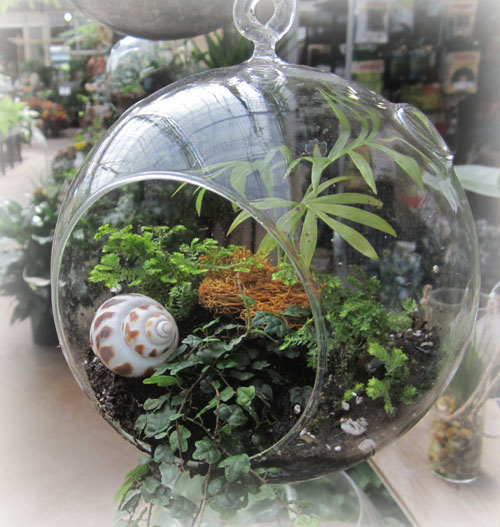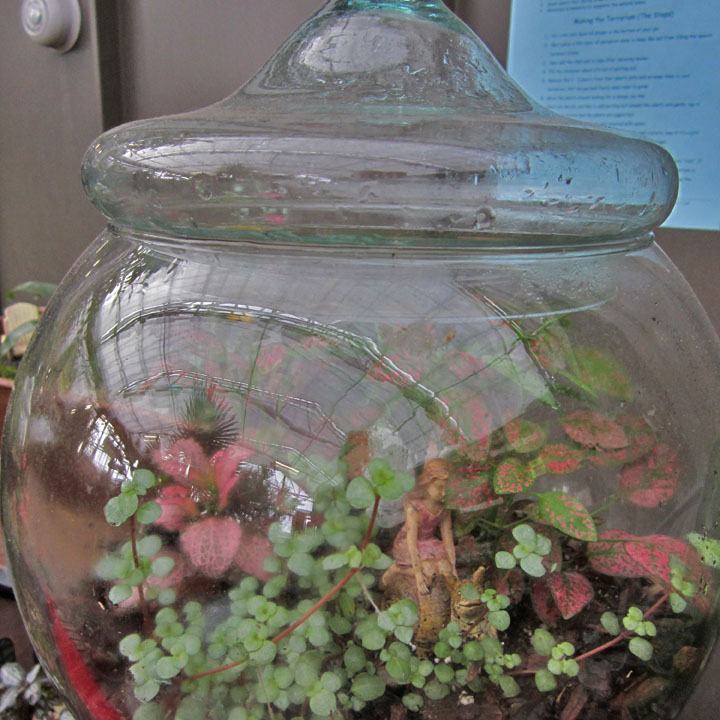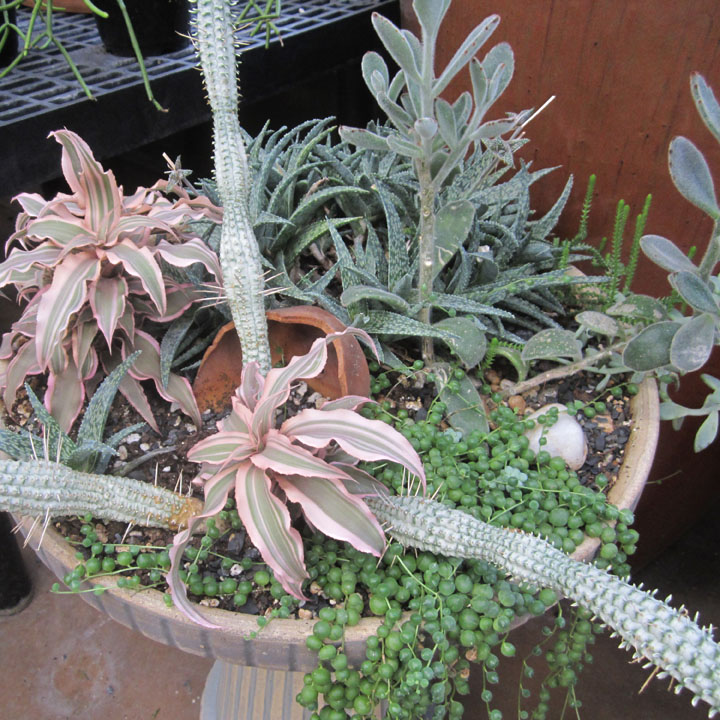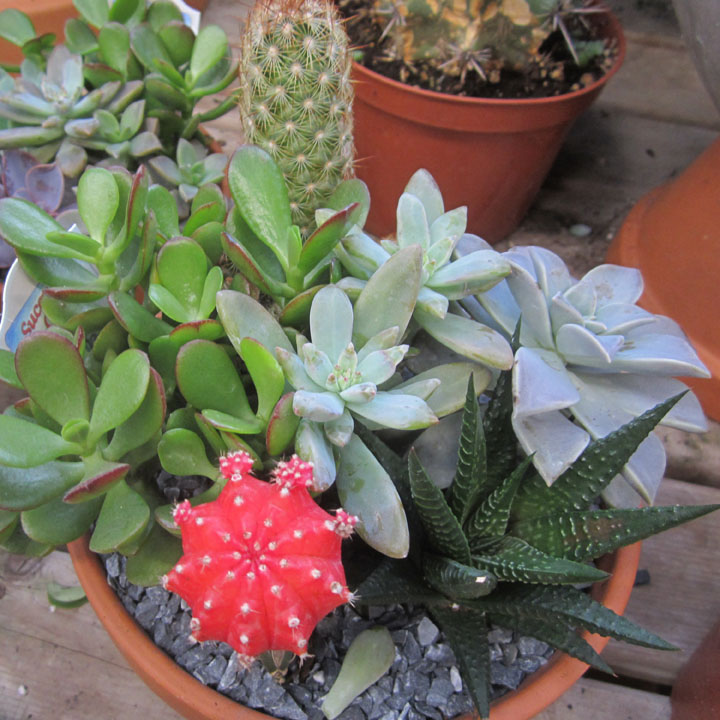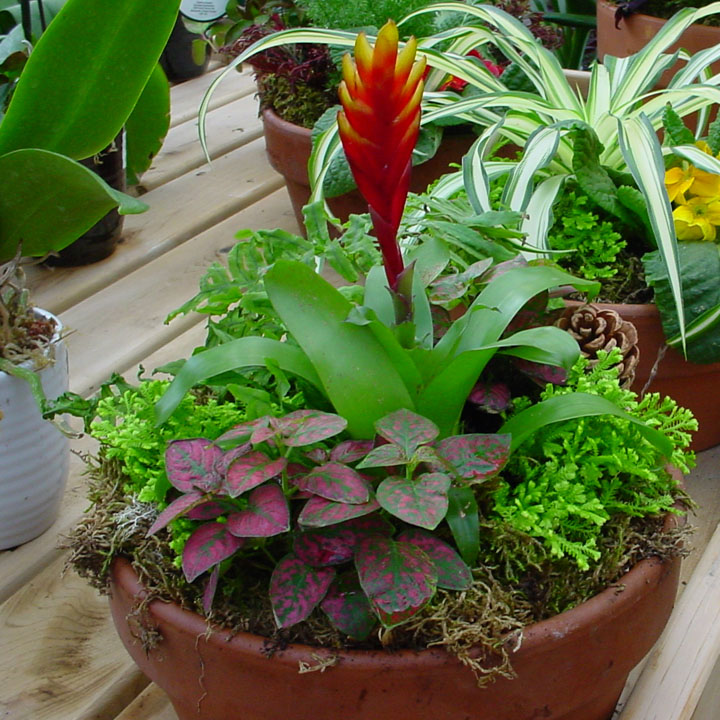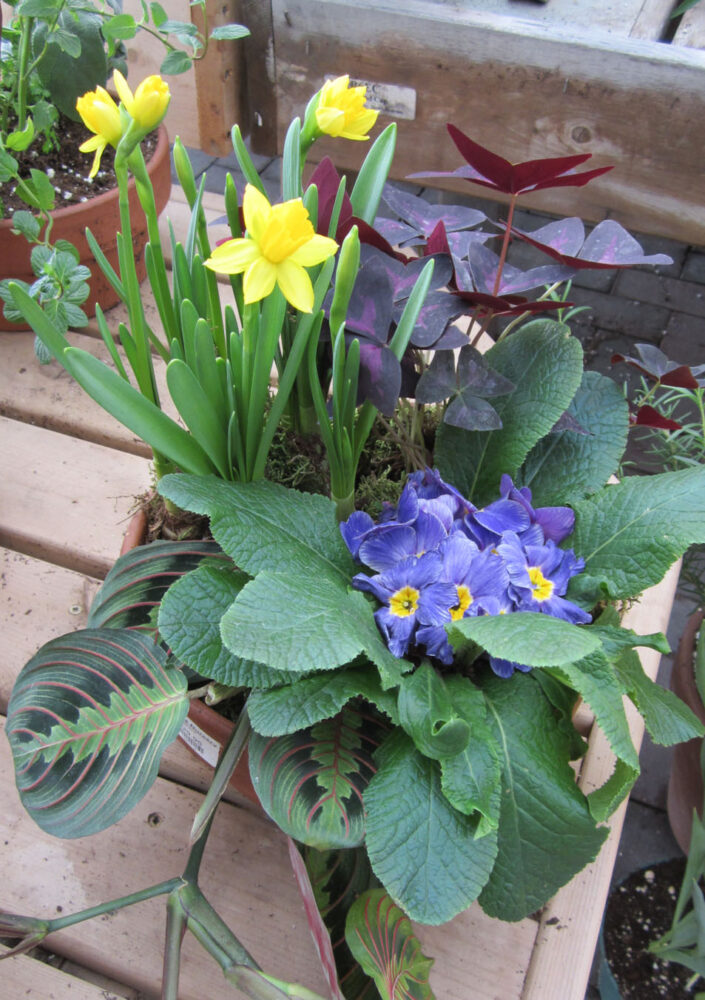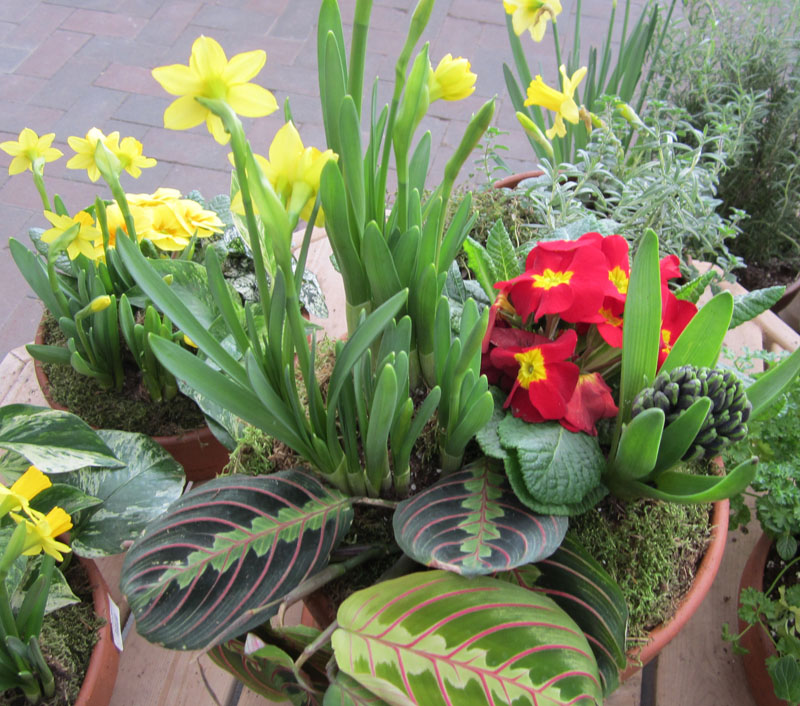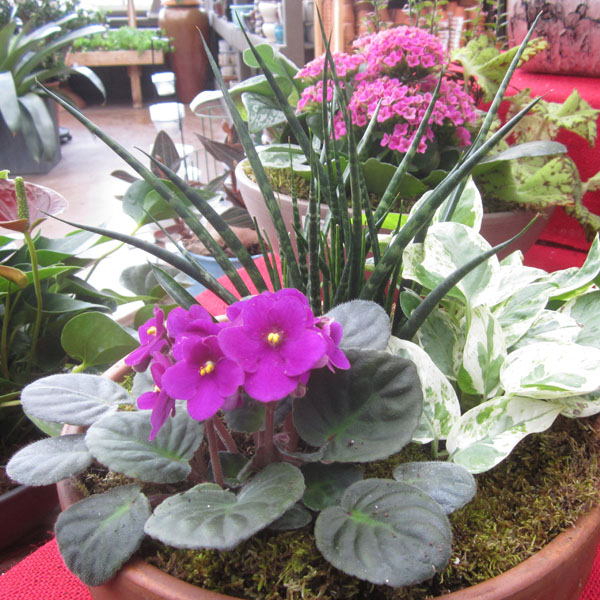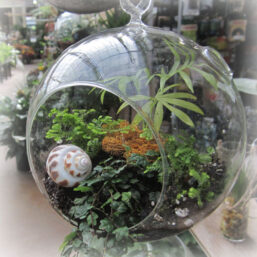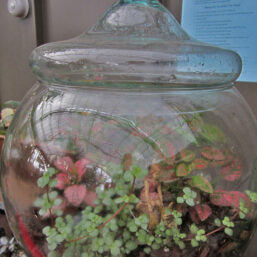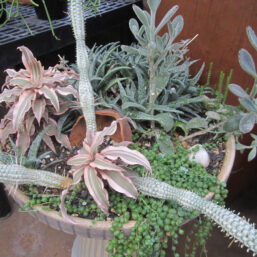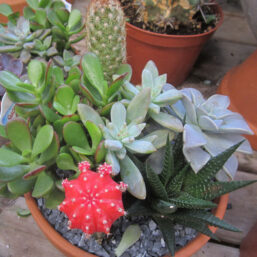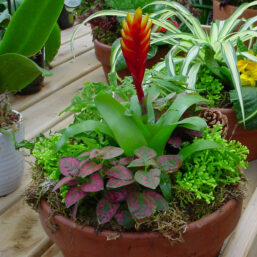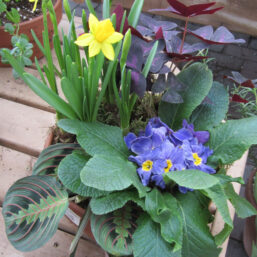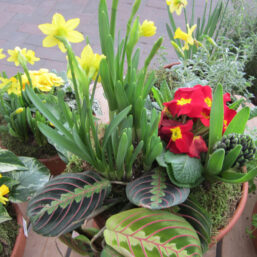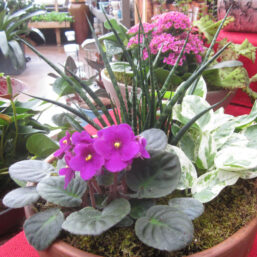Terrariums
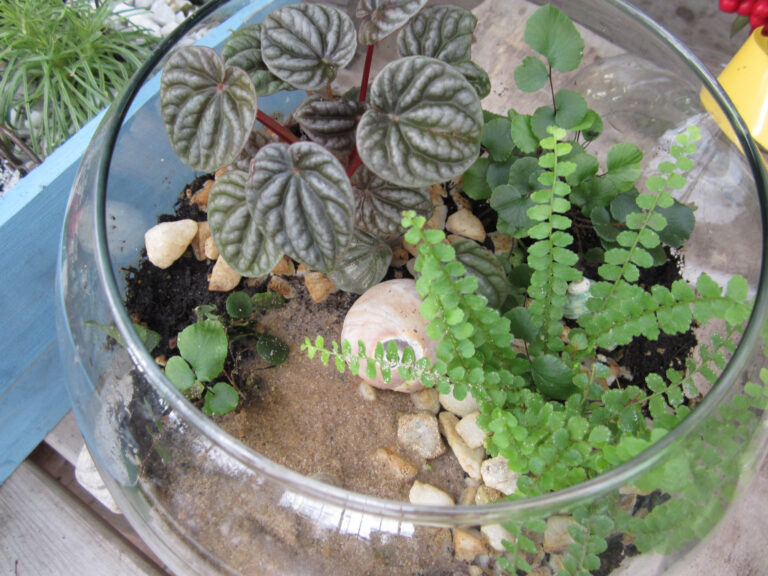
Make a Gift Terrarium
A terrarium is a great way to introduce small hands to the joy of gardening. We have glass containers of all sizes but you could repurpose a large mason jar or pickle jar.
This would make a lovely gift (or Valentine) too!
Join us for a workshop on making a terrarium on February 4. Click here to learn more.
Or watch this quick demonstration of how to put your own together:
Or download this printable PDF
Stop in to Ward’s and pick up your Terrarium Soil Kit, plants (and maybe a container) then enjoy building your terrarium at home.
Terrarium Supplies:
• Glass jar with wide-enough opening to get your hand in
• Gravel or small stones – enough to fill bottom of jar to 1 inch depth – about a thumb
• Sphagnum moss
• Gardener’s charcoal – same amount as gravel
• Potting soil – enough to bring the soil level about 1/3 to 1/2 way up the jar.
• Small plants that thrive in warm, moist environment
• Miniature ornaments to complete the natural scene.

Certain plants make better choices for terrariums because they have interesting texture forms and need humidity.
Making the Terrarium (The Steps)
- First, spread a one inch layer of stones in the bottom of your jar.
- Next, place a thin layer of sphagnum moss to keep the soil from filling the spaces between stones.
- Now add the charcoal to help filter decaying leaves.
- To finish your earth’ layer, fill the container about 1/4 full with potting soil.
- Remove the 2 – 3 plants from their plastic pots and arrange them in your terrarium. Not too packed! Plants need room to grow.
- Move the plants around looking for a design you like.
- Once you decide you like it, add potting soil around the plants and gently tap it down so it is firm and the plants are supported.
- Water gently until the stones are covered with water.
- Cover your jar with wax paper and a rubber band. Tie on a pretty bow if it’s a gift!
- Put the terrarium in a place with moderate or occasional sunlight.
Caring for Your Terrarium
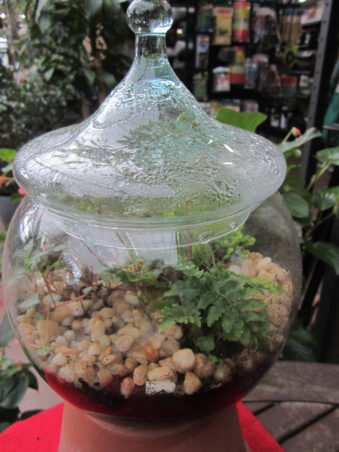 Beads of water will form (or condense) under the paper and your plants will enjoy “rain”.
Beads of water will form (or condense) under the paper and your plants will enjoy “rain”.
If no water forms after a day, open the terrarium and add a little more water.
A terrarium is really easy to care for. Look at the bottom of the terrarium. If there is water among the stones then you should not water it for a few days.
As the plants grow, you’ll want to give them a “trim” occasionally with sharp scissors to keep them to size.
Trouble-shooting:
- Keep your terrarium in bright, indirect light.
- A terrarium functions as a closed ecosystem and will sustain itself as long as you keep the lid on.
- If your terrarium is fogging once a day, that’s a good sign. You don’t need to open it – the ecosystem is telling you it doesn’t need additional air.
- Not fogging? Add a ¼ to ½ cup of water, being careful not to over-water, and close again.
- Continual fogging? Leave lid off for a day or two.
- Rotting plants? That means you’ve added too much water. Remove the rot and replace with fresh plants.
- Mushrooms are a sign of a healthy terrarium! But they’re only nice to look at—do not eat!
- If mold starts to develop, sprinkle cinnamon on the moldy area while avoiding plant leaves.
Dish gardens are another way to garden in miniature and a great idea for cactus collections.
Our Summer Garden Advice
By mid-summer, perennial gardens can start to look overgrown, annual flowers begin to fade, and bugs may be munching on your vegetables.
Summer Articles